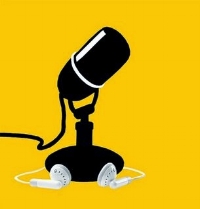Disability Thought Of The Week: More On Advocacy and Activism
/I’m going to try to write a blog post later this week on something I have been thinking about a lot lately.
My thought, which I am trying to tease out and shape, is that what is usually called “self advocacy” and what is generally understood to be “disability activism” are of course related, but call for very different strategies. Approaches that can be smart, ethical, and effective for self-advocacy in your personal life are not always right or successful for larger-scale systemic advocacy on disability issues. And vice versa, maybe. I hinted at this in a post from last month, but I want to explore it in more depth, with more specifics.
I hope to have more to say on Friday, or maybe the weekend. In the meantime, feel free to use the comments to suggest examples.













